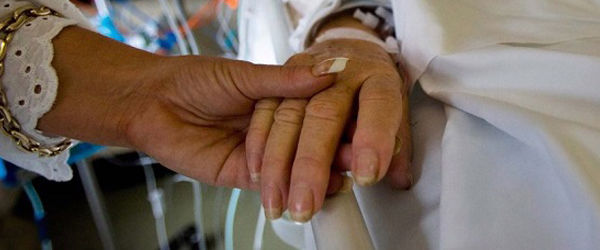Months of hard work are paying off for three Notre Dame High School students heading to New York City for an all-expenses-paid trip to participate in this weekend’s finals of an international debate competition.Notre Dame’s team of twin brothers, Connor and Rory Smith, juniors, and Monique Candiff, senior, have advanced to the “Elite 8” round of the Bickel & Brewer/New York University International Public Policy Forum (IPPF), following in the footsteps of three previous Notre Dame teams that took second place in 2011 and third place in 2010 and 2012. Notre Dame is the only California school remaining in the competition, which began with 213 registered teams representing 34 states and 29 foreign countries. The Sherman Oaks Catholic high school was among the top 32 teams based on the Notre Dame debate students' 2,800-word essay on the 2013 topic, “Resolved: Adaptation should be the most urgent response to climate change.” The top 32 advanced into a single-elimination, written debate contest in which each team was assigned a position (affirmative or negative) on the climate change topic, and paired teams volleyed papers back and forth via email. Notre Dame defeated Rato Bangala School from Nepal in the top 32 round and went on to defeat Brookfield East High School of Brookfield, Wisconsin in the “Sweet 16” round.“During the written rounds, the students from Notre Dame High School distinguished themselves as one of the best teams in this worldwide competition,” said William A. Brewer III, partner at Bickel & Brewer and founder of the IPPF. “These students now have an opportunity to showcase their advocacy skills during a single-elimination, oral debate competition to determine who wins one of the most coveted titles in debate — IPPF World Champion.” The first place winning team takes home $10,000, with the school getting $5,000 and the team members splitting the rest. The Notre Dame team members participating in the IPPF competition have already won $500 for their debate program by advancing to the Elite 8 round.Notre Dame English teacher and director of debate, Christina Tallungan, notes that her IPPF debate team students have done 99 percent of the research and writing work, averaging ten hours a week since the beginning of the school year. “What I bring to it is really just a discussion of strategy,” said Tallungan, a Notre Dame alumna, who was helping team members polish their negative position argument in the final days leading up to the competition.“In the quarter-finals, we will be arguing that mitigation and geo-engineering is a more urgent response to climate change, not adaptation methods,” she explained. Since team members don’t know if they will make semi-finals or finals or if they will even move to the affirmative position, they have to prep both sides of the debate.“The amount of work required at the end is extreme,” said Tallungan, who noted that team members spent between 3-5 hours a day for the past two weeks in preparation. “Besides preparing an affirmative essay and preparing for all the possible negative arguments that people can make against us, the students will prepare six different negative papers to prepare against the other six possible affirmatives they could debate if they make it past the quarter-finals.” "Global climate change is a topic I find interesting, so it's made the research and extra effort at home easier," said Connor. "It's not a battle to do more work for it.""I'm really excited to go to New York City and compete and meet people, not only from across the country but across the world," said his brother, Rory."The research for this competition has helped me so much with different things I'm doing in school and the papers I'm writing," said fellow debate team member Monique. "I know how to structure my thoughts better; I know how to articulate myself in an eloquent way. I can hold conversations with adults about bigger issues."I feel like debate brought me out of the 'me-mindset' and showed me how the world actually functions and how we need to be drawing attention to things" like climate change," she added.The IPPF semi-finals and final debate take place April 13. They will be broadcast live at www.bickelbrewer.com/ippf. During the final debate, about 1 p.m. Pacific Daylight Time, online viewers can vote for the school they believe should be named IPPF World Champion. "We haven't won it [yet], but we've been in the top four for the last three years, which is really good," said Tallungan. She hopes that Tidings' readers will watch the live webcast of the final rounds and vote for Notre Dame "if we make it to the finals."As Connor succinctly put it: "support us — thank you."{gallery width=100 height=100}gallery/2013/0412/sfnotredame/{/gallery}

